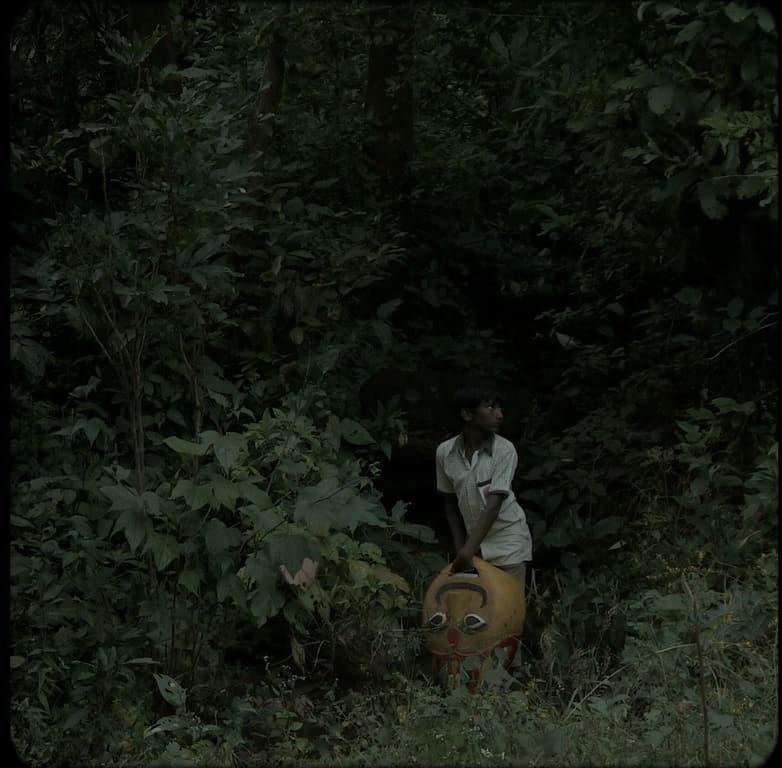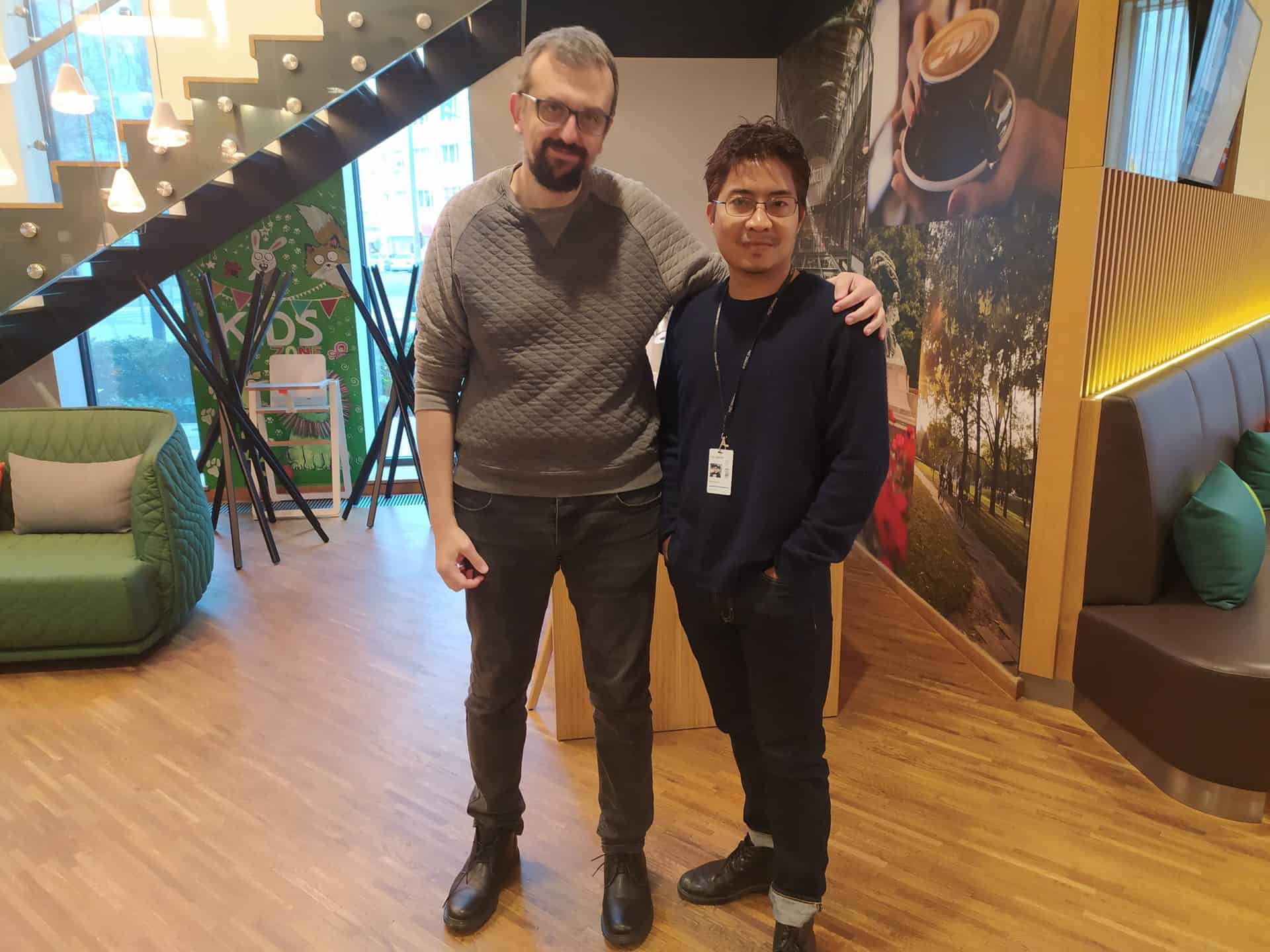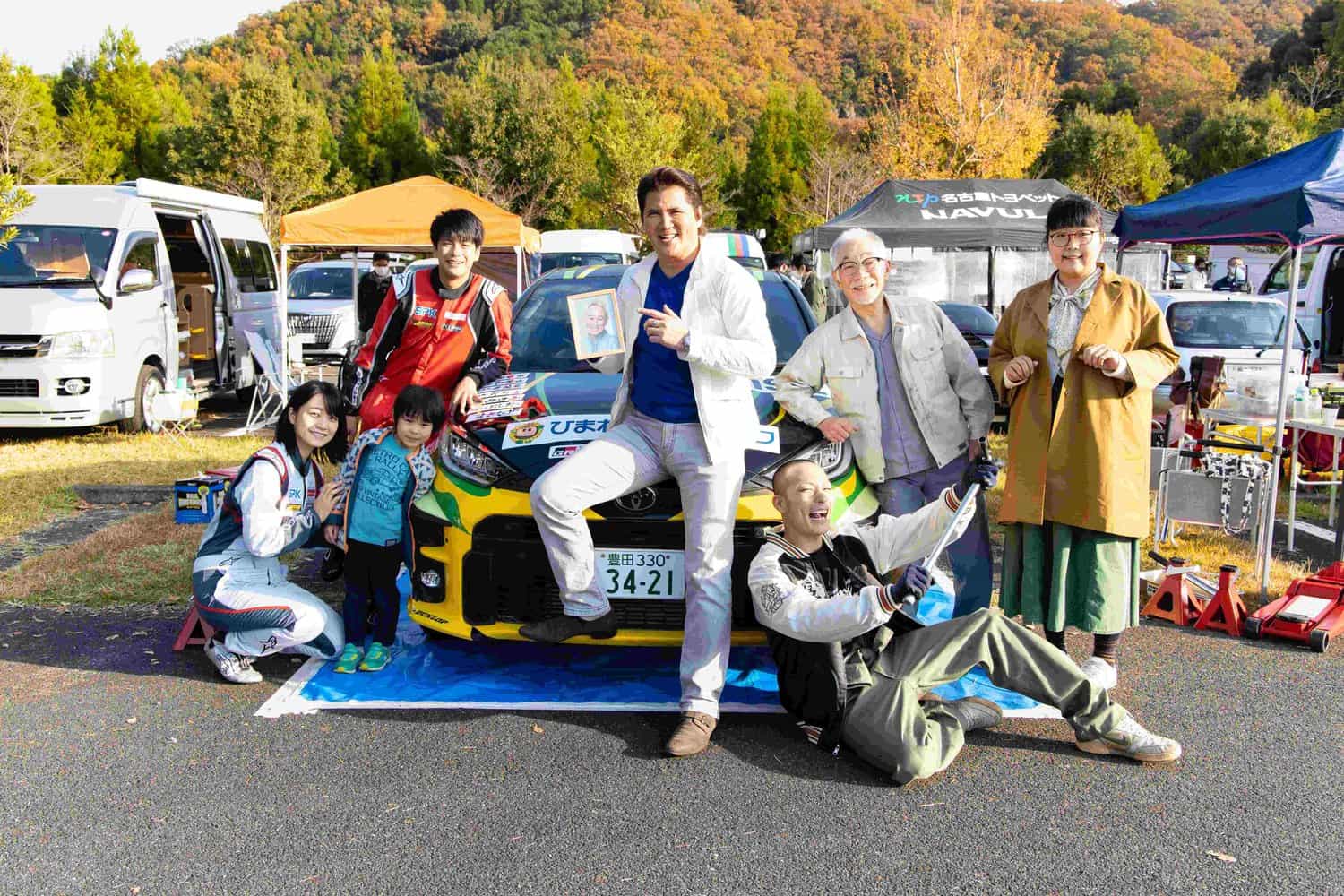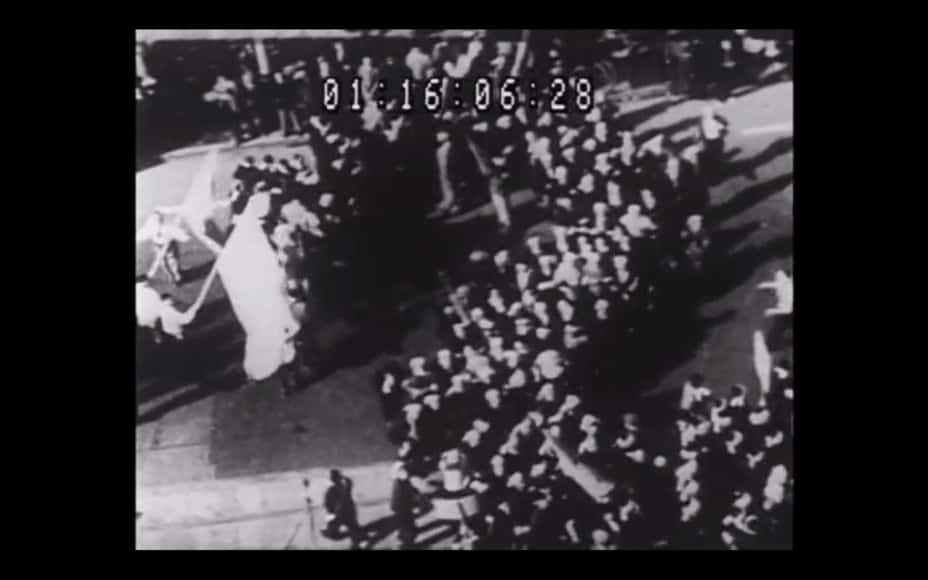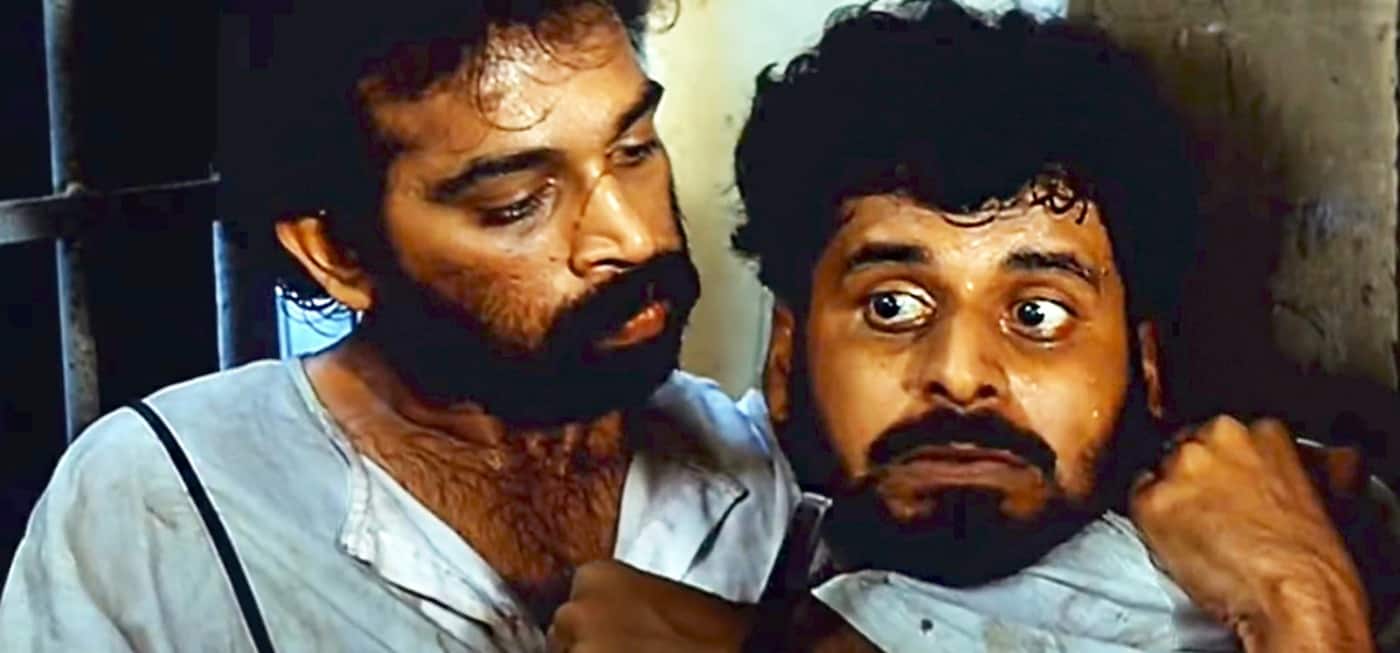Kalsubai is a mountain in the Western Ghats, in the state of Maharashtra, and is named after a goddess of Mahadeo Koli people, whose story and identity remains highly present within the consciousness of the women of the tribe today. Yudhajit Basu explores both their customs and the area they inhabit, along with the effect the legend of the goddess has on people.
“Kalsubai” is screening at Vienna Shorts

The short film starts with the polyphonic sounds of women chanting, before it opens to a rounded-square frame format, which stays on the film from beginning to end. The first frame shows a procession of women moving in the fields, before it gives its place to two monks standing in the forest at night, close to something that looks like a primitive altar. The next segments focuses on the mountainous area, where a shadow passing over the grass is soon revealed to be of one of the many wind generators that are placed on the tips of the mountains. The rest of the movie follows this pattern, where images of the environment are succeeded by ones showing everyday life in the area and vice versa, while a narration in the volume of a whisper that continues from beginning to end of the movie, tells the myth of Kalsudai.

Cinematically, the movie is truly impressive, with the combination of Yudhajit Basu's direction, Rachit Pandey's cinematography and Gourab Kumar Mullick's editing resulting in a number of sequences that is a wonder to look at. Particularly the way some transitions are presented through a combination of frame within frame and fade in/fade out, as in the way the images of the mountain give their stead to those of water and then to those of hieroglyphics, will probably have every viewer wishing to watch them again and again, in order to understand how the crew managed to achieve this effect. The same applies to the transitions of images in black and white to ones of color, which are depicted through the same technique.
Also of note are the various long shots of the area, that initially seem as stills, but if one pays a bit more attention, one will realize that there is always a kind of movement, from people moving slowly in the background or in the corners of the screen, in a playful approach that is also quite intriguing. One of them, which initially seems to show some kind of ritualistic masks in the field, is soon revealed to be a number of people carrying some colourful statues, in a “trick” that is quite funny.
Jyoti Shubhash's whispering voice intensifies the ritualistic sense that permeates the film, which becomes even more intense upon the coming of the night, where the polyphonic voices singing are finally revealed to be a number of women chanting around a fire, with the two aspects providing the soundtrack of the film.
The antithesis presented by the simple life the people of the area live with the wind generators of the area, and the myth of the goddess which is eventually revealed as one addressed to people “disrupting” the balance (meaning tourists essentially) creates an interesting contextual aspect, thus adding another level to the short, beyond the audiovisual one. Furthermore, the story of Kalsubai, who told a childless couple that she will become their daughter if they never marry her or have her deal with used dishes, presents a kind of feminist message, which justified why her myth is particularly popular among the women of the area.
Overall, the experimental/ethnographic approach Basu implements in “Kalsubai” is ideal, with the film working exceptionally well as a tour guide to the customs, the setting and the life in the area, both contextually and cinematically.


